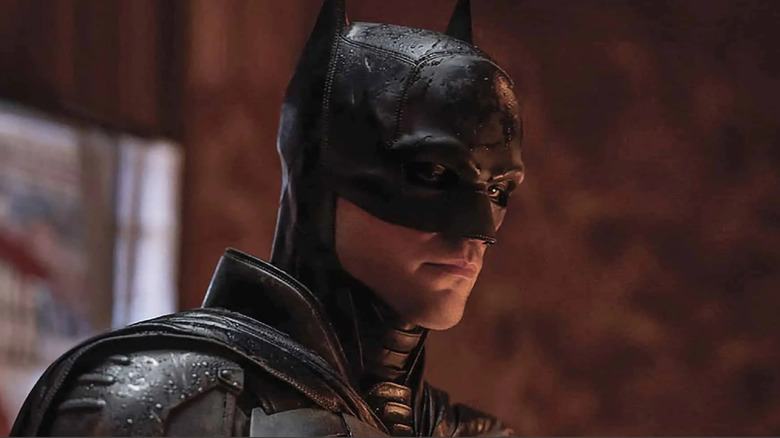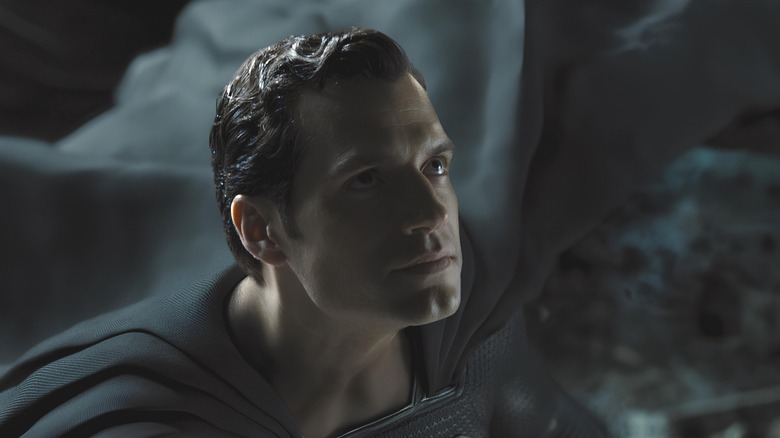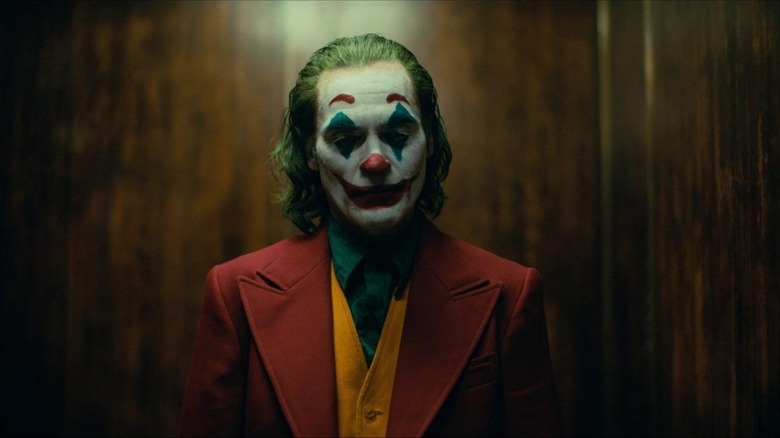Superman, Batman And More DC Characters Enter The Public Domain Sooner Than You Think
The public domain can be a double-edged sword. While it's great that we can have different takes on Shakespeare plays or updated versions of characters like Sherlock Holmes, we also get all of those low-quality horror knock-offs like "Winnie the Pooh: Blood and Honey" and the upcoming "Mickey's Mouse Trap."
It's likely the latter issue that is going to cause DC — both the studio and the publisher — a lot of stress over the course of the next couple of decades. This is because, as of 2034, Superman and Lois Lane will both be entering the public domain. Batman will join them in 2035, followed by the Joker in 2036 and Wonder Woman in 2037, making some of the most valuable and recognizable characters in the DC universe available to use in new ways by just about anyone.
"There's going to be 100 [new Batman comics]," comic book author Chris Sims told Variety. "They're going to have them ready to go." However, this comes with the same caveat that "Steamboat Willie" entering the public domain does, meaning that only elements of the specific source material will be usable. "You get Batman, but you don't get Robin," Sims explained. "You get Superman, but you don't get kryptonite." Yet elements added later will eventually be accessible as well: public domain laws state that no commercial entity can hold onto a copyright for more than 95 years.
There are some restrictions on unauthorized stories
The kinds of projects we're likely to see as a result of these copyrights expiring are only limited to the artist's or creator's imagination to some degree. However, as pointed out above, they will have to operate under the rules these characters had in their stories when they first came out. For example, Superman will not be able to fly initially, as the original version of the hero could only "leap over tall buildings in a single bound." On the other hand, the CW superhero drama "Smallville" used this, as well as the absence of the character's iconic suit, as a self-imposed rule and was still able to thrive for 10 seasons.
While the impending countdown on these established heroes and villains doesn't seem to bode very well for DC, there are other factors worth considering during this transitional period. Over 20 years ago, Jay Kogan, DC's deputy general counsel, saw this storm coming and came up with a series of countermeasures to help protect these properties. He suggested making regular changes to help keep the current design and mythology of the characters more distinctive to modern fans.
"Keep 'em fresh and up-to-date," he wrote (per Variety). "By gradually changing the literary and visual characteristics of a character over time, a character owner can keep whatever the then-current image of the character is as the de facto standard in the public consciousness."
What types of stories could we see in the coming years?
As any comic book fan will know, alternate versions of characters aren't necessarily a bad thing. After all, both Marvel and DC have authorized and published all kinds of different takes on their signature properties. However, what will change is that these corporations will no longer have the ability to control how the characters are perceived in the public eye. While they'll maintain the official versions of Batman or Superman, that won't stop anyone else with a basic understanding of copyright law from exploiting these heroes.
For instance, since horror movies seem to be the first bastion when these characters enter the public domain, it's worth noting that the original version of Batman killed people. Similarly, a horror film about the Joker is almost a certainty, as even DC's own versions of the villain have no qualms about violently and sadistically murdering at the slightest provocation. As for Superman, with "The Boys" and "Invincible" already doing these kinds of stories, some of the originality of, say, a psychotic Kal-El would likely be lost to a degree.
Regardless of what these heroes and their foes get up to in the coming decades, however, some versions will be readily accepted by fans while others will likely be rejected, as has always been the case with the characters' alternative mythologies. Still, for comic book fans craving something new and fresh, there could be an exciting time ahead in the realm of superhero stories.


